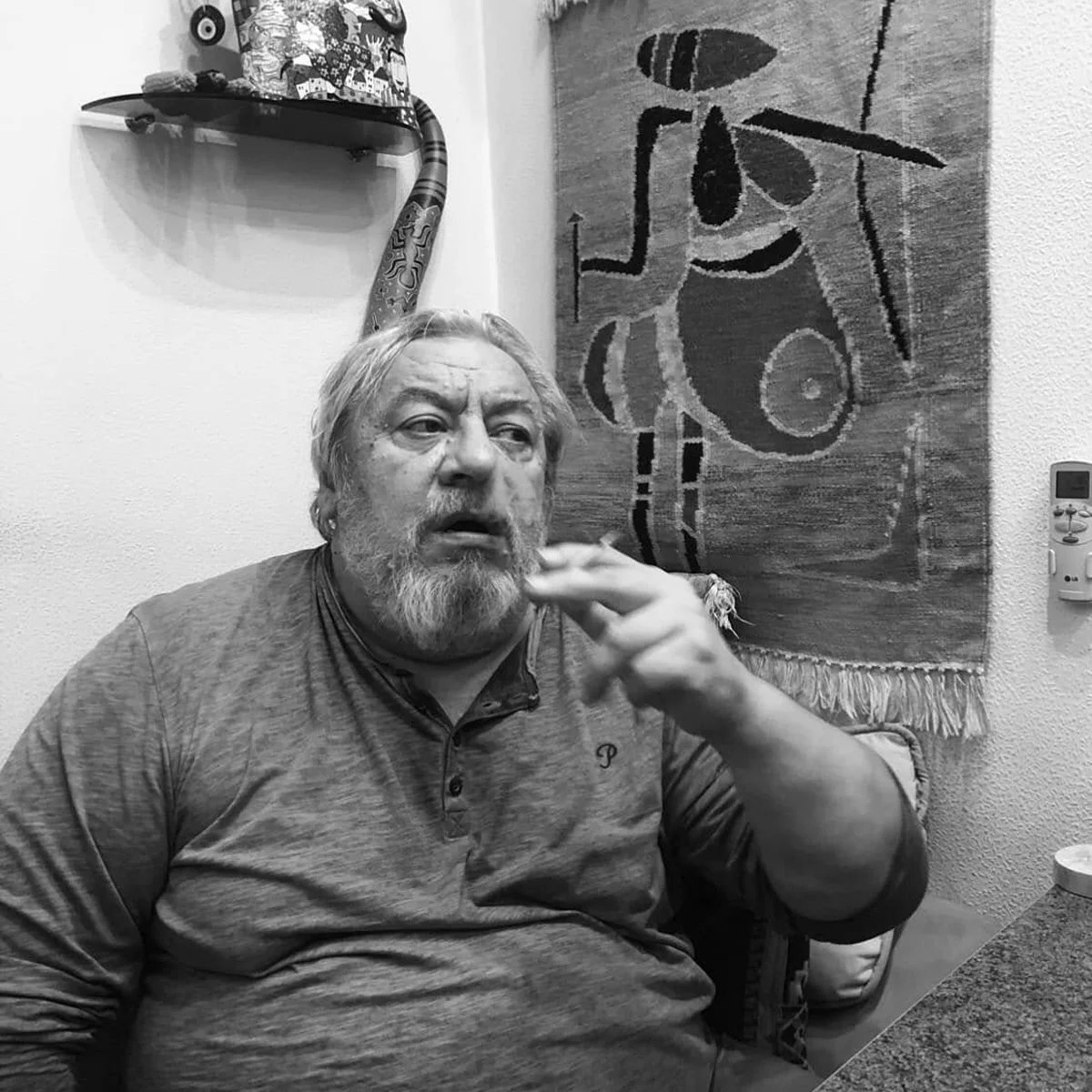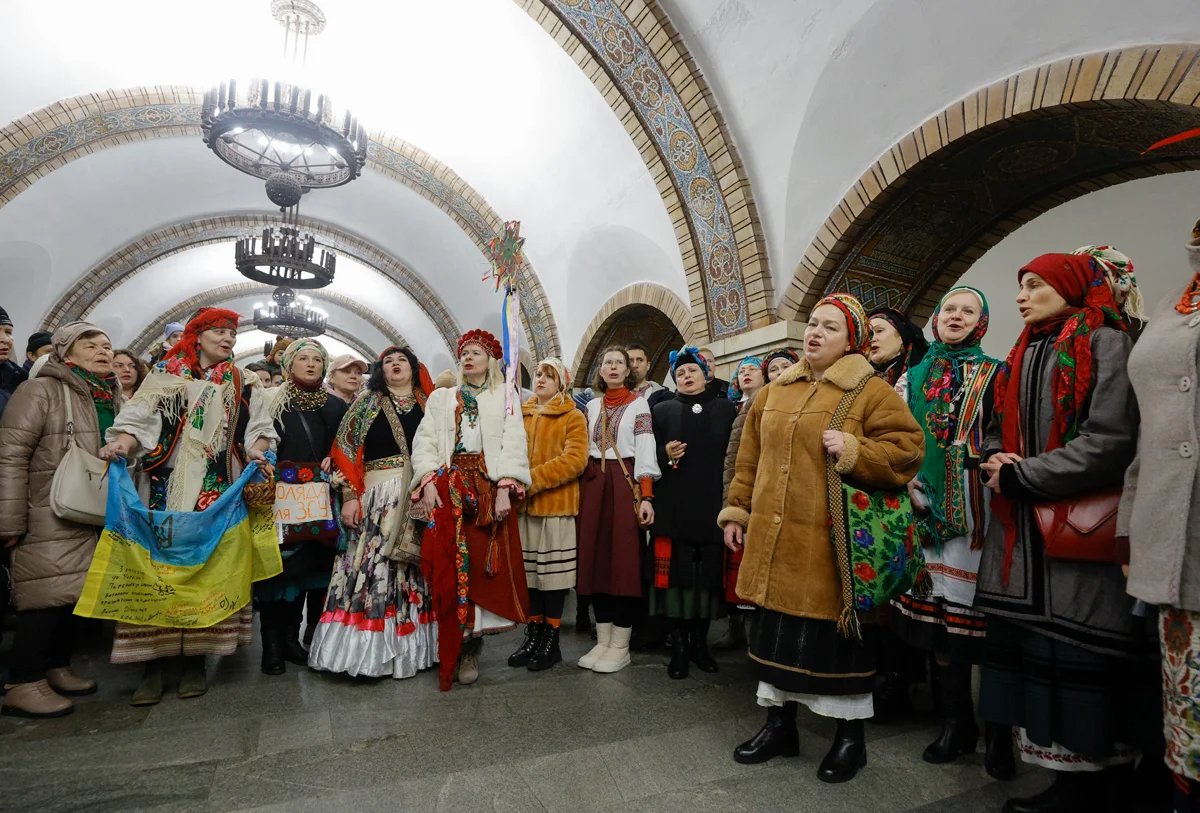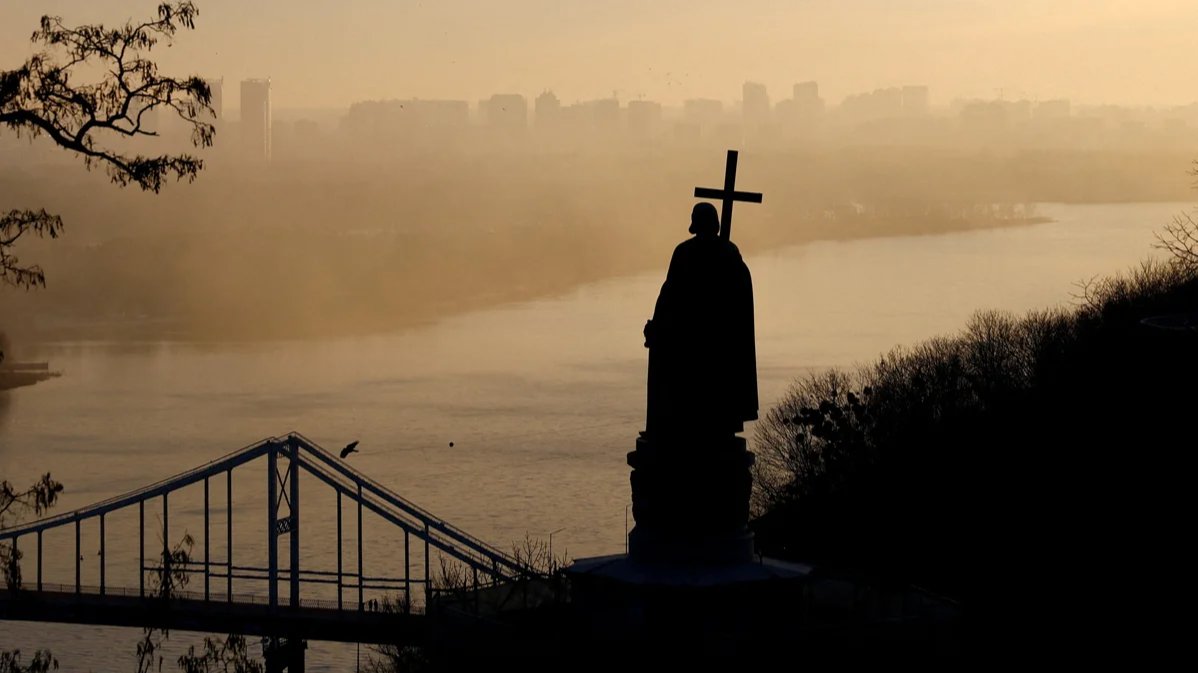Those who found themselves still seated around a kitchen table at daybreak on Wednesday got to watch as the night sky gradually grew pink and golden before turning into a sunny and warm winter morning. Following a night in which not a single explosion had been heard, these magical colours dressing the silence were the greatest gift imaginable in wartime.
At 6:47am, however, the first air-raid siren of 2025 roared to life, smashing that silence as aerial drones approached Kyiv from the northeast. Popular lore has it that compared to ballistic missiles, Shahed drones are relatively harmless, and so it’s quite common for people not to bother rushing down to bomb shelters when a Shahed attack is incoming, and adhering to the rule of two walls is considered sufficient by most.
We heard the first explosion, after which there was another. In Kyiv, it’s usually the densely populated left bank of the Dnipro or the parts of the right bank where housing is close to industrial facilities that suffer the most during Russian airstrikes. This time, though, they struck the government quarter at the very heart of the capital.
More precisely, the drones managed to fly there, which means that lyrical deviations about the pink and golden sky aside, the first air raid warning of the new year was treated with all seriousness.
On New Year’s Day, Ukraine stopped pumping Russian gas to Europe via a pipeline that crosses its territory. The totally legal and fully expected decision by Kyiv to end the transit of Russian gas following the expiration of a five-year contract between Ukraine and Gazprom was nevertheless described by Putin’s propagandists as a “further escalation of the conflict.”
Even without such additional pretexts, striking Ukraine over New Year is a well-established Russian tradition, and on this occasion, fragments from one of the downed drones caused damage when they landed on the House of the Council of People’s Commissars, a six-storey Soviet building built in the 1930s that has been a symbol of Kyiv since the communist era.

Ihor Zima. Photo: Oleksii Bobrovnykov / Facebook
Ihor Zima, a well-known Ukrainian neurobiologist, and his wife, Olesya Sokur, were killed in the attack, having been at home, in bed at the time, according to Zima’s friend, Daria Dushechkina. Seven more people were injured in the strike, Kyiv Mayor Vitali Klitschko later said.
On Bankova Street, a 19th century mansion known by locals as the “Puppet Palace” now has most of its windows blown out and its façade dotted with broken brick as the Russians succeeded in striking an architectural monument that had somehow survived both World Wars and 70 years of Soviet rule.
Air raid sirens sounded for the equivalent of 22 entire days last year in Kyiv, and the count for 2025 already stands at over three hours.
Despite the best efforts of cynics, a rumour that a significant event would take place in the States on 30 December that could bring the war to a sudden end circulated in Kyiv last week. Apparently the focus on the nativity during the festive season has nurtured a wider belief in miracles, which somehow managed to seep into the news feed.

Carol singers collect donations for the Ukrainian military in the Kyiv metro, 31 December 2024. Photo: Sergey Dolzhenko / EPA
The country’s main Christmas tree was illuminated on Kyiv’s Sofiyska Square, but few people paid any attention to it standing as white as the absent snow in the heart of the capital. There certainly won’t be any ceremonies taking place there, as all mass events in the capital are banned, for obvious reasons.
Air raid sirens sounded for the equivalent of 22 entire days last year in Kyiv, and the count for 2025 already stands at over three hours.
Still, a large crowd of people gathered on the square on 29 December for a Free Azov rally, with children and adults lining up by the road holding hand-made signs demanding their loved ones return home from Russian captivity. “I want to hug my Dad,” one sign read. “My grandson is held captive, my son is at war. Every day brings more pain,” said another.
Though the war did not miraculously come to an end on 30 December, there was nevertheless reason to celebrate on that day, when 187 Ukrainian prisoners of war and two civilians who had been in Russian detention were returned home in the final prisoner exchange of 2024. “Each one has family and friends waiting for them at home, and it is a joy that we brought them back,” Ukrainian President Volodymyr Zelensky wrote, adding that their release meant that an additional 189 families were happy.
On the morning of 31 December, as the air raid sirens began their scream amid a Russian ballistic missile strike on Kyiv, deep underneath the city, carols were sung and nativity scenes were shown in the capital’s metro, and eternal life once again triumphed over death, laughing in its face.
Join us in rebuilding Novaya Gazeta Europe
The Russian government has banned independent media. We were forced to leave our country in order to keep doing our job, telling our readers about what is going on Russia, Ukraine and Europe.
We will continue fighting against warfare and dictatorship. We believe that freedom of speech is the most efficient antidote against tyranny. Support us financially to help us fight for peace and freedom.
By clicking the Support button, you agree to the processing of your personal data.
To cancel a regular donation, please write to [email protected]

